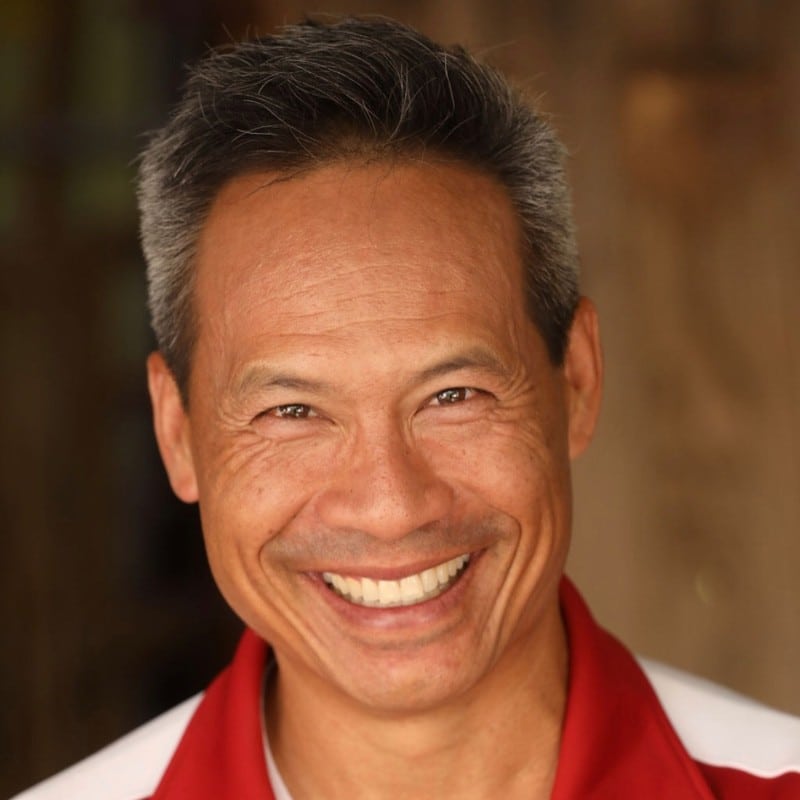After participating in PPAI’s Legislative Education and Action Day last month, Ray Chang, account executive at business services provider Angeles Fulfillment Services, returned home from Washington, D.C., to discover how tariffs have directly impacted his business.
Chang says the firm recently landed a contract to perform a kitting job – filling backpacks with school supplies – for a loyal client. As part of the contract, one of the projects was to be only short term and the other was to be ongoing through the fall.
“As a small business, every job matters,” says Chang, a member of PPAI’s Government Relations Action Council. “Strategically planning resources for a job is key to survival. Margins are small, so it’s important to work efficiently.”
Chang says the job was scheduled to start in April, but after President Donald Trump unveiled global reciprocal tariffs, the client immediately put everything on hold.
Exactly what aspect of the tariffs made the client balk isn’t known, but Chang says it doesn’t matter.
“We know that the tariffs changed the viability and scope of the project,” he says. “The instability it has created means we now can’t plan. How many workers do we need to keep on? How long can we keep them on? When will this job resume? Or will it cancel?

Ray Chang
Account Executive, Angeles Fulfillment Services
“These are questions that we need to answer to continue on as a small business and are now unable to answer. And this is just one client of a small company.”
Pausing Operations
The tariff ripple effect isn’t just causing distributors to lose business – it’s also forcing manufacturers to consider drastic changes.
For example, Boulder, Colorado-based supplier Hexa Custom recently announced on its website that it’s “temporarily pausing operations due to global manufacturing challenges.”
- Founded in 2018, the premium outerwear manufacturer showcased its Hexa Design Lab as well as a plethora of apparel options at The PPAI Expo 2025.
In an email sent to customers on May 9, Hexa explained that its primary manufacturing partner and company owner in Tianjin, China, has made the decision to consolidate all production at its facility in Vietnam. Hexa attributed the decision to the “lasting impacts of COVID-19, economic shifts in China and the ongoing tariff situation.”
RELATED: Pros And Cons Of Sourcing From Vietnam
The Vietnam facility lacks the specialized infrastructure required for Hexa’s highly customized outerwear, the firm said. As a result, all Hexa Custom manufacturing activities have been paused, effective May 10.
“This pause is a necessary step as we navigate complex global challenges,” the email said. “While we cannot predict exactly what the future holds, we are thoughtfully exploring potential paths forward. Our focus remains on honoring the relationships we’ve built and the standard of quality our community has come to expect.”
Tariffs: Winners & Losers
Even before the global trade war, which is seemingly on pause for 90 days following an agreement reached by the U.S. and China, PPAI 100 firms in January and February were preparing for supply chain disruption and pricing increases.
- More than half (58%) of suppliers reported that they were adapting their strategies due to new economic realities, whether anticipated or already felt, according to PPAI Research.
- Meanwhile, 62% of distributors claimed they were refining their previous strategies.
Mitch Cahn, president of Newark, New Jersey-based supplier Unionwear, which produces American-made baseball caps and hats, bags, portfolios and binders, says there are clear winners and losers because of the evolving situation.
Suppliers who import and sell blank commodity promo products are sure to suffer, Cahn says, because the effect a tariff has on cost is directly related to what percentage of your cost gets tariffed.

Mitch Cahn
President, Unionwear
“A company that imports blank goods and decorates them only has the unit cost of the blank goods subject to tariffs,” Cahn says. “But a company that uses sea freight to bring in goods and doesn’t add value to them has almost their entire cost subject to tariffs.”
Distributors aren’t off the hook. Those who buy direct from China are accustomed to manufacturers doing all the raw material sourcing for them, Cahn says. But that’s rare among domestic manufacturers.
WATCH: PPAI Hosts Industry Leaders For Tariffs & Trade Webinar
“If distributors are serious about reshoring, they’ll be more successful using their import connections to bring in raw materials and have the finishing done here,” Cahn says. “They’ll need to follow transparency in labeling laws, but these tariff-driven situations generally don’t require 100% USA made.”
Courtesy Of The Red, White And Blue
You’ve probably guessed who Cahn anticipates will benefit most from the tariff turmoil.
“Domestic manufacturers, like Unionwear, who don’t export a lot and don’t have to fear export backlash,” he says.
Although many domestic manufacturers buy imported raw materials, Cahn says this has been mitigated by four factors:
- Many suppliers of raw materials left China after previous tariff increases during the first Trump administration.
- Raw materials are a lot easier to substitute than finished products. “A cotton twill with a weight, weave and Pantone color is pretty interchangeable and can be ordered from other countries with lower tariffs,” Cahn says.
- Raw materials are always going to be a minor factor in most domestic factory production when compared to labor. Even a doubling of the cost of the fabric in a domestic baseball cap is only going to increase the cost of the hat by 5%, Cahn says.
- Raw materials don’t require country of origin labeling or product packaging, giving exporters a lot more flexibility to circumvent these rules. “I doubt their countries’ governments are going to do anything to stop them,” Cahn says.
RELATED: Sourcing Locally vs. Global Trade: What’s Promo’s Path Through Tariffs?
Suppliers specializing in made-in-the-USA products are already reporting higher demand.
- April 2024 is the biggest month-over-month increase in distributor searches for “made-in-U.S.” products since April 2020, according to PPAI’s technology partner SAGE.
‘Thoughtful Approach’
PPAI has long supported free trade.
Serving members of all political stripes, the Association recognizes the need for policies that strengthen the U.S. economy and support domestic manufacturing. However, any measures – including tariffs – must be implemented strategically to minimize short-term economic disruption while setting the stage for long-term growth.

Drew Holmgreen
President/CEO, PPAI
Abrupt cost increases impact businesses of all sizes, from small distributors to global suppliers, ultimately affecting jobs, investment and product pricing throughout our industry.
“We advocate for a thoughtful approach – one that balances economic goals with the realities of supply chain dynamics,” says Drew Holmgreen, president and CEO of PPAI. “With support from our lobbying partners in Washington, we are in ongoing conversations with industry volunteers, trade groups and policymakers with the goal to ensure that any trade policies consider the full scope of their impact and allow businesses time to adapt.”
- Tariff concerns were one of the key issues that PPAI members and staff discussed with members of Congress during LEAD 2025.
For questions or suggestions on regulatory or government affairs issues, please contact Rachel Zoch at RachelZ@ppai.org.


